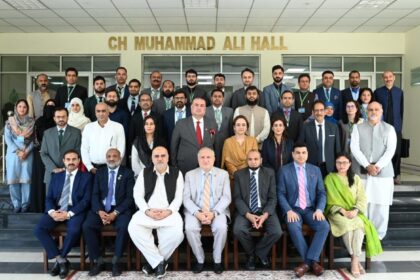Vice Chairperson of the Punjab Social Protection Authority, Jahan Ara Manzoor Wattoo, met World Bank social protection experts Ms. Sarah Black and Mr. Alexander in Washington D.C. to discuss the importance of Adaptive Social Protection in Pakistan. The meeting highlighted the need for systems that can respond to climate change, natural disasters and other emerging challenges while protecting vulnerable communities.
The Pakistani delegation also included Sumaira Samad, Additional Secretary at the Federal Ministry for Poverty Alleviation and Social Safety Division, and Shazia Atta, Chief of Section (Social Protection) at the Planning and Development Department of Khyber Pakhtunkhwa, who participated in discussions on policy alignment and service delivery improvements.
Jahan Ara Manzoor Wattoo stressed that Adaptive Social Protection is a key priority for PSPA and a central agenda item within the Interprovincial Social Protection Forum, established to promote provincial collaboration and strengthen implementation. She recalled that ASP was a main theme at the Punjab Social Protection Conference 2024 organized by UNICEF, where stakeholders reviewed existing programs, sought better coordination and explored partnerships for sustainable reform.
She also noted that the National Dialogue on Adaptive Social Protection 2025, organized by GIZ, reinforced the urgency of building climate resilience into social protection strategies to reduce risks for low-income and disaster-prone communities.
World Bank expert Ms. Sarah Black welcomed PSPA’s leadership and acknowledged Pakistan’s clear commitment to building adaptive and inclusive systems. Mr. Alexander said he was encouraged by steps taken in Punjab to integrate adaptive measures into social protection, underlining that strong ownership and sustained dedication are vital for long-term resilience and effective protection of vulnerable populations.











